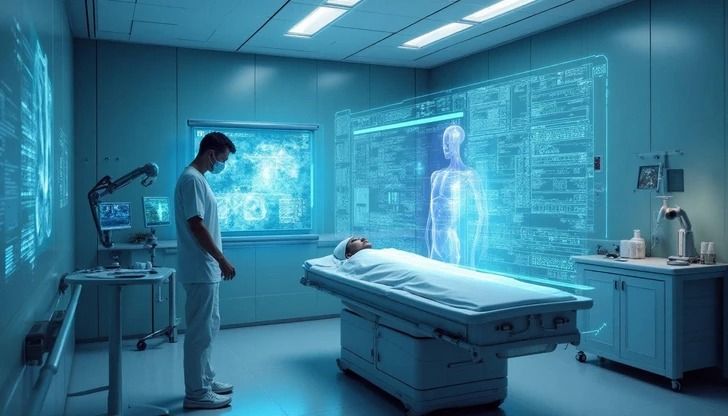By Alimat Aliyeva
Microsoft has developed a groundbreaking artificial intelligence system for medical diagnostics that not only assists doctors but also has the potential to outperform them, demonstrating a fourfold advantage in solving complex clinical cases. The tool, called Microsoft AI Diagnostic Orchestrator (MAI-DxO), was created by Microsoft AI under the leadership of Mustafa Suleyman, co-founder of DeepMind, Azernews reports.
MAI-DxO acts as a “data orchestrator,” assembling a virtual panel of five AI agents, each simulating a doctor with a different medical specialty. According to the Financial Times, these agents interact, debate, and collectively arrive at diagnostic conclusions — essentially forming an AI-powered medical board.
To evaluate its capabilities, the system was tested on 304 of the most challenging clinical cases from the New England Journal of Medicine, where expert-level diagnostics are typically required. A novel testing method called the “debate chain” was used to ensure the transparency of the reasoning process behind each diagnosis.
The system leverages large language models from multiple leading AI companies — including OpenAI, Anthropic, Google, xAI, and DeepSeek. The OpenAI o3 model achieved the highest performance, correctly diagnosing 85.5% of the cases. For comparison, human doctors achieved around 20%, although they were not allowed to use reference materials or consult with colleagues — which would normally boost their accuracy in real-world settings.
Beyond diagnostic accuracy, the AI system demonstrated significant cost-efficiency by eliminating unnecessary tests and procedures, potentially saving healthcare systems hundreds of thousands of dollars per deployment.
The technology is expected to be integrated into Microsoft platforms such as Copilot and Bing, which currently handle more than 50 million health-related queries per day. Suleyman emphasized that this marks a major step toward developing AI that is not only faster but also more accurate and cost-effective than human professionals — a true breakthrough in healthcare innovation.
Dominic King, former head of DeepMind Health and now a Microsoft executive, called MAI-DxO “a new portal into the future of healthcare.” However, he also noted that the system still requires refinement and rigorous real-world testing before it can be deployed in clinical environments.

